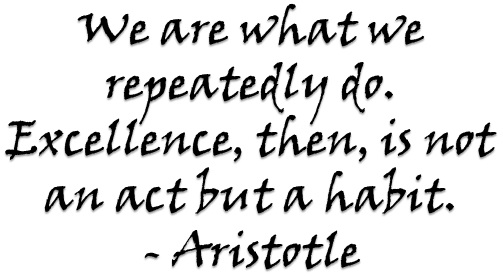Sounding Your Best
Do you remember your English class teacher repeating over and over about the importance of writing and speaking without using filler words?  And reminding you to take the time to collect your thoughts and articulate your point of view? And emphasizing the importance of inference or reading between the lines? For some of us, our younger selves failed to realize the importance of these great communication skills as the pillars of great leaders. Here are a few important communication skills to master so that you, too, are perceived as a great leader and communicator.
And reminding you to take the time to collect your thoughts and articulate your point of view? And emphasizing the importance of inference or reading between the lines? For some of us, our younger selves failed to realize the importance of these great communication skills as the pillars of great leaders. Here are a few important communication skills to master so that you, too, are perceived as a great leader and communicator.
1. Get to the point (and stop giving too much information). Giving too much information does not elevate your message or impress people about how much you know. In fact, it actually does the opposite and often leaves the listener struggling to follow what is being said. When you craft messages that are to the point and backed up with no more than three short points, your listener will understand. If the listener doesn’t understand, he or she will probably ask for more.
I’ve heard many wanna-be leaders say, “I’ll just wing it.” They tell me that they don’t do well with notes and don’t have time to practice. They even get compliments for their communication but they aren’t sure for what reason. I then ask them, how often are you asked to speak? Usually, they reply, “Not that often.”
I know that these wanna-be leaders are earnest in their aspirations but I know that they will not succeed in compelling their audiences to act or to even listen. The speakers who are compelling will make communication look effortless and appear to be “winging it.” There are very few people who can actually do that skill well. Leaders craft messages that are short and succinct and they work at this skill until it is effortless.
2. Voice command. Have you heard someone comment about (or maybe you have observed) a leader who commands the room? But what does that really mean? How to you know that person commands the room? What characteristics of speech, language and voice tell you that? Do they speak fast or slow? Are they loud or soft? Is vocal pitch low or high? Wordy or succinct? Use of stories or just facts? Are there any speech or voice distracting mannerisms?
There are a lot of characteristics that play a role in a commanding voice. Do you know what they are and do you use them? Try this…. Record your own voice next time you are on a conference call. When done, listen carefully to the recording. What do you notice about your voice that fits a commanding vocal style and on what area could you improve?
You might not be used to hearing your voice and feel embarrassed by it. However, listening to yourself speaking or reading aloud will not only help you become used to it but help you identify your strengths and your development opportunities.
3. Alignment between your words and your body language. Body movements such as facial expressions, eye contact, gestures and your posture tells the listener your emotions and attitude. The listener will ignore your words and believe your body language every time. Shifting from one foot to the other, avoiding eye contact, forgetting to smile, bad posture, crossing your arms, fidgeting or hiding your hands are behaviors that detract from your message.
Whether you are speaking at a major conference, negotiating a deal with a client or facilitating a team meeting, craft your messages carefully, strive to command the room and be sure you are aligned in both your words and your body language. You will be the impactful leader that everyone talks about.
